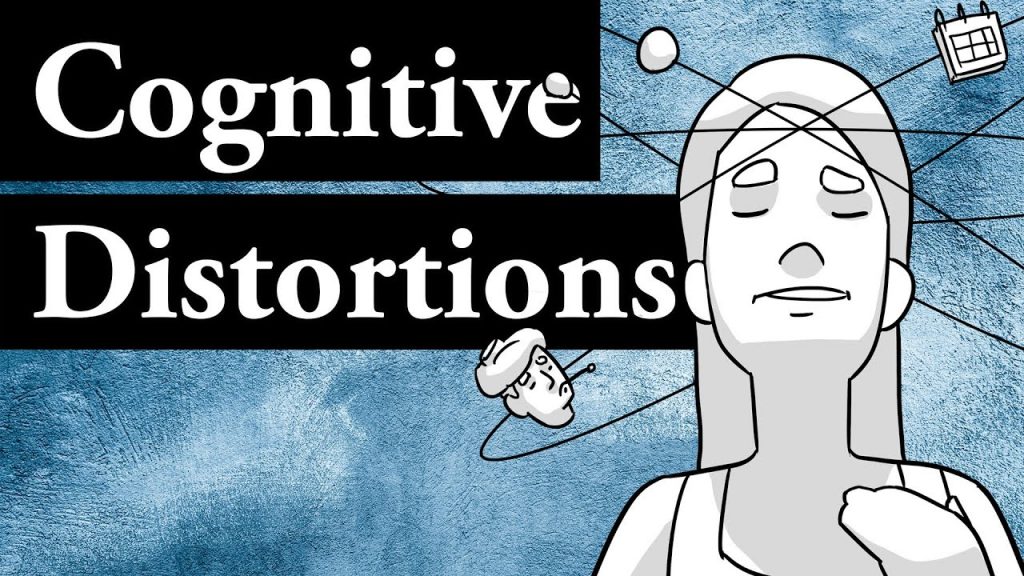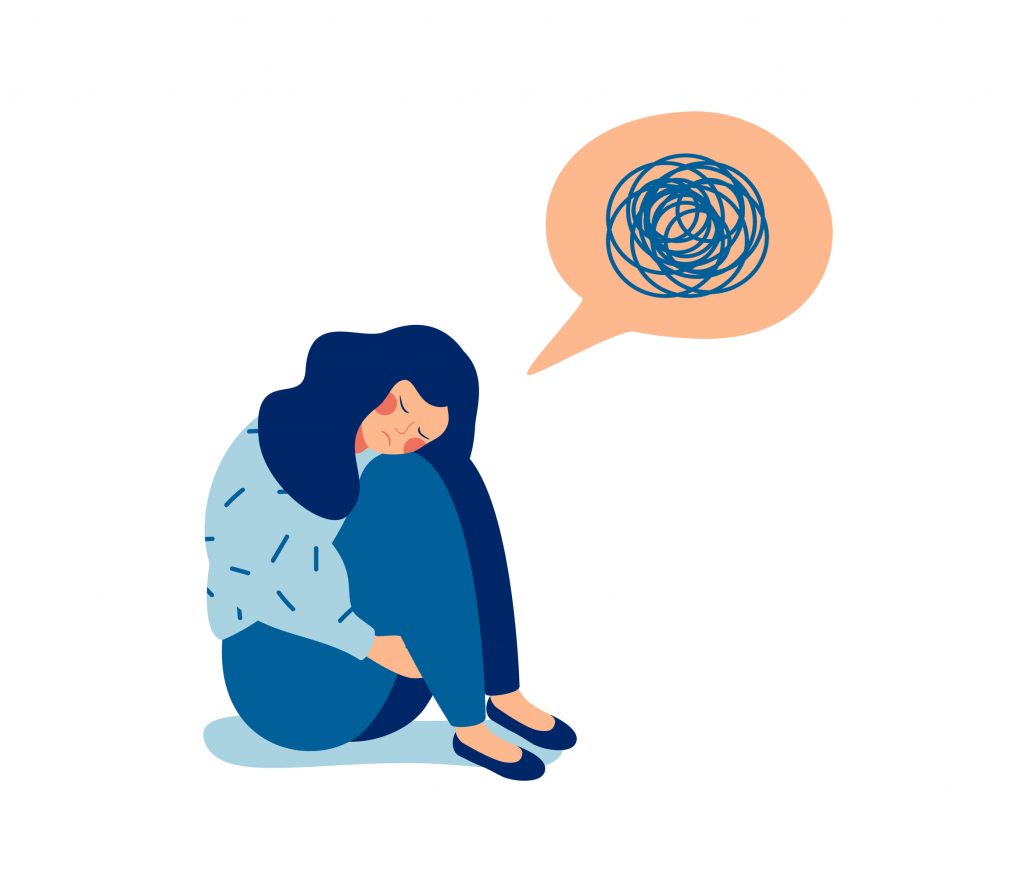
What is Cognitive Distortion?
“I’m never going to lose all this weight, I should just quit.”
“I keep failing my exams at school, what’s the point I should drop out.”
“I missed a call from my boss, that’s it I’m getting fired.”
The easiest way to define what a cognitive distortion is is through examples and these are all great ones! So, Cognitive Distortions are a way most people view life in an inaccurate way which is almost always negative.
Just negative thought patterns that completely distort your view of your reality. But thankfully, things are usually never as bad as they seem.
The more we give in to these distortions the more often they will occur and over time they can lead to worsened anxiety, depression and cause a lot of difficulties throughout your life.

So What’s The Source?
The ongoing theory that is backed by research is that we develop cognitive distortions as a coping mechanism. Each and every one of us goes through so many shocking and heartbreaking events in our lives that our brains need a way to get through them. Cognitive distortions seem to be the way out for our brains.
So overwhelming thoughts and too much stress cause us to change how we think in ways to protect ourselves. But the way we end up thinking isn’t logical or good for our brains over a long period of time.
How Many Distorted Thought Patterns Are There?
Well you’d be surprised but over time researchers have found about ten patterns which we will talk about below;
Polarized Thinking
So this one can be referred to as all or nothing thinking, black and white thinking or even tunnel vision. This occurs when your brain has convinced you that there is either a good outcome or a bad one and nothing in between. You end up stuck in this rut of polarized thinking which degrades your mental health rapidly!
Overgeneralization
Gained 1kg? You must be morbidly obese.
Can’t memorize the periodic table? You suck at all science.
This one comes across as super straightforward. You take one negative experience in a field and apply it to all other facets of your life. Overgeneralization has come to be commonly associated with Post Traumatic Stress Disorder as well as anxiety disorders as well.
Catastrophizing
When you experience something you don’t know or that is unfamiliar to you, you immediately assume the worst. A great example could be you’ve just ordered something online, and you’re waiting for the parcel to be delivered. But now it’s late and you assume that it must have been lost in the post and has been delivered to the wrong person, now you’re out $50.
So this can sometimes be mulled down to just an overreaction but for people who experience it, it usually stems from something that happened to them much, much earlier in life.
Personalization
Taking something much too personally when it had nothing to do with you in the beginning. This is the most common item on this list! Have you blamed yourself for situations that can’t possibly be your fault? Or were way out of your control? Maybe you think you’re being specifically excluded or ridiculed? These are all symptoms of Personalization, which has been tied to anxiety and depression.
Mind Reading
We’re all guilty of this one, assuming you know what others are thinking in any social situation.
But this one can commonly be misconstrued as empathy, easy way to tell the difference will be if it doesn’t confirm your suspicions or beliefs it’s probably empathy.
This one is commonly associated with children and young adults experiencing anxiety.
Mental Filtering
Ever look at a situation and you cannot see anything but the bad side of the horizon? That’s called Mental Filtering.
Not only is this an inaccurate way to view the world it’ll also compound the feelings of anxiety and depression. This way of thinking can also trigger thoughts of suicide over time, in some people.
Discounting The Positive
Similar to the last entry on this list ^ ‘Discounting the Positive’ also includes highly negative ways of thinking.
People who consistently discount the positive will always attribute anything positive in their lives to dumb luck or a freak accident.
It is important to recognise when you have earned your successes in life!
“Should” Statements
This one usually can stem from trying to compare your life situation to those around you.
“I should have much more in my savings.”
“I should be able to buy a house by now.”
The feeling of being ‘left behind’ in life is not uncommon for this one either.
These kinds of thoughts can harm your self-esteem and worsen any anxiety you might have also.
Emotional Reasoning
Emotions are not the be-all, end-all of reason. Because thinking that your emotions are an accurate representation of your situation in life can lead you on a spiral down through depression.
Emotions are important, yes. But judge your life experiences on rational thought instead.
Labeling
Using singular words or labels to identify your actions in past events is what we call labelling.
Tying yourself to a single word based on one event that happened in your life or a time where you expressed a certain behaviour. This form of thinking can also cause issues in your relationships with others as you slowly progress to labelling them as well.
Conclusion
Almost everyone will experience these at least one time if not more in their lives. And recognising them is the first step to being able to fix them!
If you feel you might be experiencing one or more of these, be sure to talk about them with your mental health professional.





